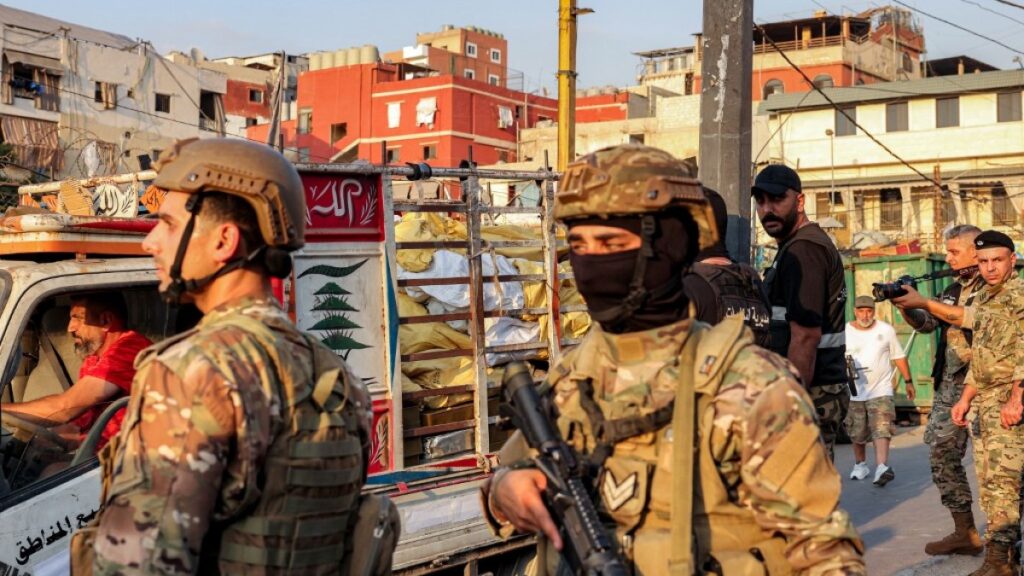PM’s office says the weapons transfer to the Lebanese army marks the start of a wider disarmament campaign.
Lebanon has launched a plan to disarm Palestinian groups in its refugee camps, beginning with the handover of weapons from Burj al-Barajneh camp in Beirut.
The prime minister’s office announced on Thursday that the weapons transfer to the Lebanese army marks the start of a wider disarmament campaign. More handovers are expected in the coming weeks across Burj al-Barajneh and other camps nationwide.
A Fatah official told the Reuters news agency the arms handed over so far were only illegal weapons that had entered the camp within the previous day. Television footage showed military vehicles inside the camp, though Reuters could not verify what type of weapons were being surrendered.
The initiative follows Lebanon’s commitment under a US-backed truce between Israel and Hezbollah in November, which restricted weapons to six state security forces. Since the November 27, 2024, ceasefire agreement, Israel has continued attacking Lebanon, often on a weekly basis.
The government has tasked the army with producing a strategy by the end of the year to consolidate all arms under state authority.
According to the prime minister’s office, the decision to disarm Palestinian factions was reached in a May meeting between Lebanese President Joseph Aoun and Palestinian President Mahmoud Abbas.
Both leaders affirmed Lebanon’s sovereignty and insisted that only the state should hold arms. Lebanese and Palestinian officials later agreed on a timeline and mechanism for the handovers.
For decades, Palestinian groups have maintained control inside Lebanon’s 12 refugee camps, which largely operate outside state jurisdiction. The latest initiative is seen as the most serious effort in years to curb the presence of weapons inside the camps.
Palestinian resistance movements grew out of displacement and political exclusion after the creation of Israel in 1948, when some 750,000 Palestinians were forced from their homes.
Over the years, groups including Fatah, Hamas, and the Popular Front for the Liberation of Palestine (PFLP) established a presence in Lebanon’s camps to continue armed struggle against Israel.
Palestinian refugees in Lebanon remain without key civil rights, such as access to certain jobs and property ownership. With limited opportunities, many have turned to armed factions for protection or representation.
The disarmament push also comes as Hezbollah faces what analysts describe as its greatest military challenge in decades, following Israeli strikes in 2024 that decimated much of its leadership.


